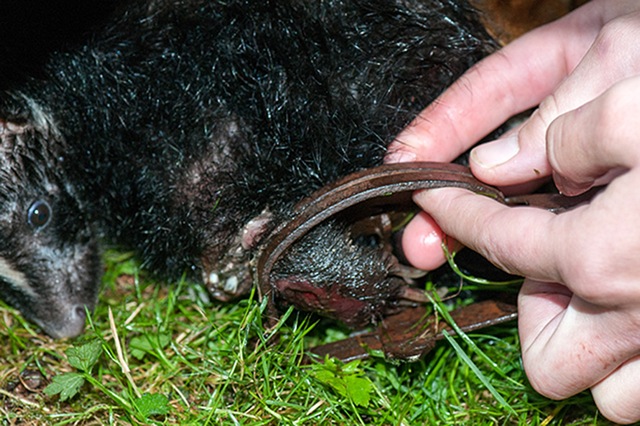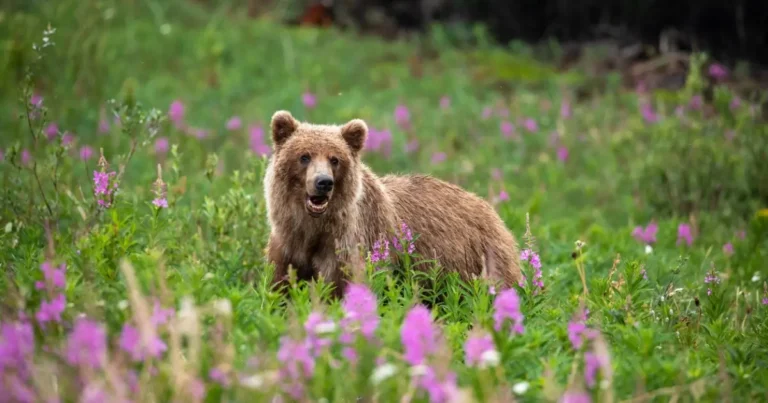Skunks are not the most popular critters. Everyone knows what the results are when one is hit on our neighbourhood streets.
Like many people it concerns me when wildlife habitat is destroyed by urban growth. But I’ve never been an animal activist. That is, not until Friday morning, July 20, 2012. It was then I saw a bedraggled piece of fur on the back lawn of my Port Coquitlam home. All morning it had been drizzling steadily, and the animal was muddy. From a distance it was hard even to recognize it for what it was—a skunk.
It was obvious that something was very wrong, but I did not want to venture too near to find out. After phoning the SPCA, I was given the number of Critter Care Wildlife Society in Langley. As I dialed the number, I could see from my back window that the animal was barely moving. One little paw that faced me twitched slightly. The person on the phone was helpful, but she said they could do nothing unless I could get a box over it. The idea was not appealing, but neither was the fact that an animal was suffering in my backyard.
I took a large plastic box, punched air holes in it, and tentatively approached the critter. It was then I discovered that dug deep into the flesh of its front paw were the jaws of a leg hold trap. I thought leg hold traps were a problem somewhere else, somewhere far from Metro Vancouver. But here it steadfastly held the paw of this creature.

Photo: Skunk in a leghold trap, Port Coquitlam, BC.
Credit: Robert Belyk
I was able to cover it with the box, and the Critter Care people arrived in about 45 minutes, but they were unable to open the rusty jaws. The little critter was taken back to Langley where the trap would be removed.
The rescue people said that they would try to save the paw, but looking at the way the jaws had gnawed into the flesh, I did not hold much hope. These animals may be a problem, but the fact is skunks spray only when they are threatened. Naptha flakes, or urine soaked kitty litter will encourage them to move on if they nest on your property. There are, also, live trapping services available in the Metro Vancouver area.
Even beyond the injury to the skunk, what really concerns me is that the teeth of the trap could have caught someone’s cat or dog, or far worse, the hand or foot of a child. Given the condition of the wounded animal, it must have endured the pain and suffering for some time.
Who would do such a thing? I do not know, but as I discovered later there are many legal loopholes that allow these traps to be set in Port Coquitlam and other communities. Incredibly, the trapper may be beyond the law.
That Friday in July was a sobering experience. No animal should have to suffer such cruelty. For me also, the incident also had another meaning: it is clear one of my fellow Port Coquitlam residents—someone I may know, call by their first name, or nod to them on the street—did this appalling thing. There is a stench in my city… and it is not from a skunk.
Click here to view the story on BC Global TV news.
Please urge the city of Port Coquitlam to prohibit the use of all bodygripping traps.
Send your email to: citycouncil@portcoquitlam.ca
